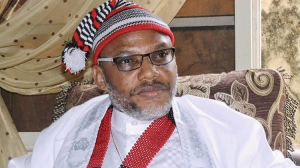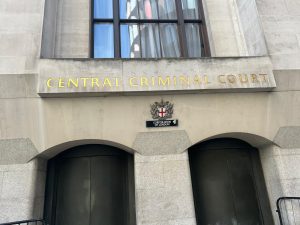Lagos, Nigeria – Socio-Economic Rights and Accountability Project (SERAP), a prominent anti-corruption advocacy group, has given Senate President Godswill Akpabio and Speaker of the House of Representatives Tajudeen Abbas a seven-day ultimatum to refer serious allegations of bribery within the National Assembly to anti-graft agencies, or face legal action.
In an open letter released on Sunday, SERAP demanded that the legislative leaders forward claims that lawmakers are required to pay up to ₦3 million to present bills, motions, and petitions to the Economic and Financial Crimes Commission (EFCC) and the Independent Corrupt Practices and Other Related Offences Commission (ICPC). The group also called for the identification of any individuals implicated in the alleged corruption, the recovery of any illicit proceeds, and the protection of the whistleblower who brought the matter to light.
The allegations stem from a viral video in which Ibrahim Auyo, a member of the House of Representatives representing the All Progressives Congress (APC) from Jigawa State, claimed that the legislative process is riddled with financial barriers. Mr Auyo, who has served in the House since 2015, stated in the video—recorded in Hausa—that no individual has approached him to sponsor a bill during his tenure, attributing this to a system where bills and petitions must be “paid for.”
“You have to pay from ₦3 million, ₦2 million, or ₦1 million to present it,” Mr Auyo alleged. “And after you present the bill, you must follow up by lobbying the whole 360 members of the House to accept the bill.”
SERAP highlighted that similar unreported claims may exist in the Senate, suggesting a broader culture of corruption that could undermine the integrity of Nigeria’s legislative arm. The group’s letter described the allegations as “a grave violation of the public trust and constitutional oath of office by lawmakers,” emphasising that “bribery should never have any influence in the exercise of legislative duties or running of the National Assembly.”
The advocacy organisation argued that such practices make a “mockery of lawmaking and legislative powers under section 4 of the Nigerian Constitution 1999 [as amended],” and expose how lawmakers are “abusing their entrusted positions to deny Nigerians of their democratic rights.” SERAP further noted that the claims represent a “quid pro quo for lawmaking” that has “seriously undermined Nigerians’ democratic rights.”
Mr Auyo’s revelations have sparked widespread concern about the transparency and accessibility of Nigeria’s parliamentary processes. If substantiated, the allegations could point to systemic issues where financial influence determines legislative priorities, potentially sidelining public interest matters in favour of those backed by wealthy sponsors.
SERAP’s ultimatum underscores the group’s ongoing efforts to combat corruption and promote accountability in public institutions. The organisation has a history of pursuing legal avenues against perceived violations of socio-economic rights, often leveraging Nigeria’s courts to enforce transparency.
As of now, neither Senate President Akpabio nor Speaker Abbas has publicly responded to the demands. With the seven-day deadline looming, observers are watching closely to see if the National Assembly will initiate an internal probe or comply with SERAP’s call for external investigations by the EFCC and ICPC.
Failure to act could lead to SERAP filing a lawsuit, potentially escalating the scandal and drawing further scrutiny to the operations of Nigeria’s federal legislature.






